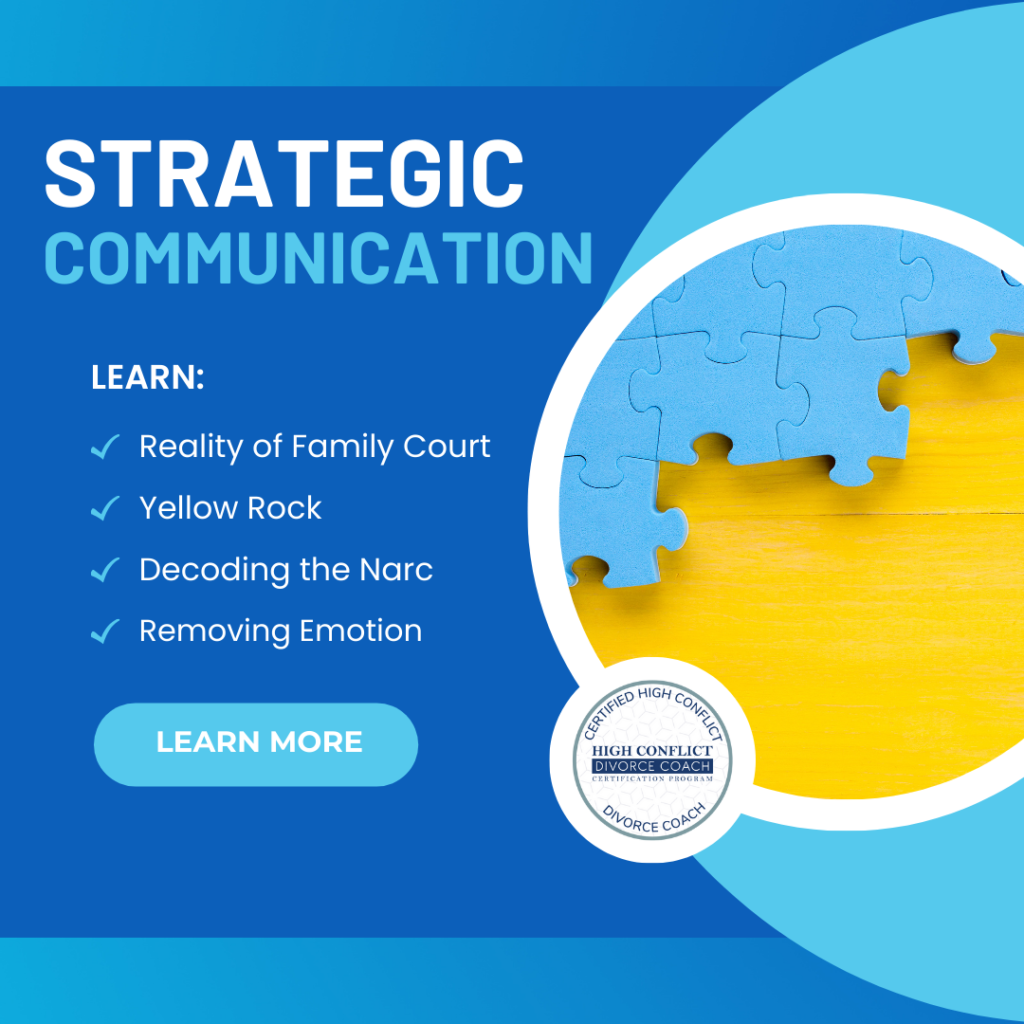In a high conflict divorce, emotions often run high, but using non-emotional communication is critical to managing difficult interactions and maintaining control over the situation. When engaging with a combative ex-spouse, responding emotionally can escalate conflict and prolong disputes, making it harder to reach productive solutions. Non-emotional communication means focusing on facts, maintaining a neutral tone, and avoiding reactive language, which helps prevent misunderstandings and reduces the chances of provoking an argument. This approach can be especially important when discussing sensitive matters such as child custody, visitation schedules, or financial arrangements.
By staying calm and factual, you demonstrate a commitment to resolving issues in a mature, cooperative manner, which not only helps protect your mental well-being but also strengthens your legal position. Courts tend to favor parents who show they can communicate effectively and put the best interests of their children first, so keeping emotions in check is crucial.





